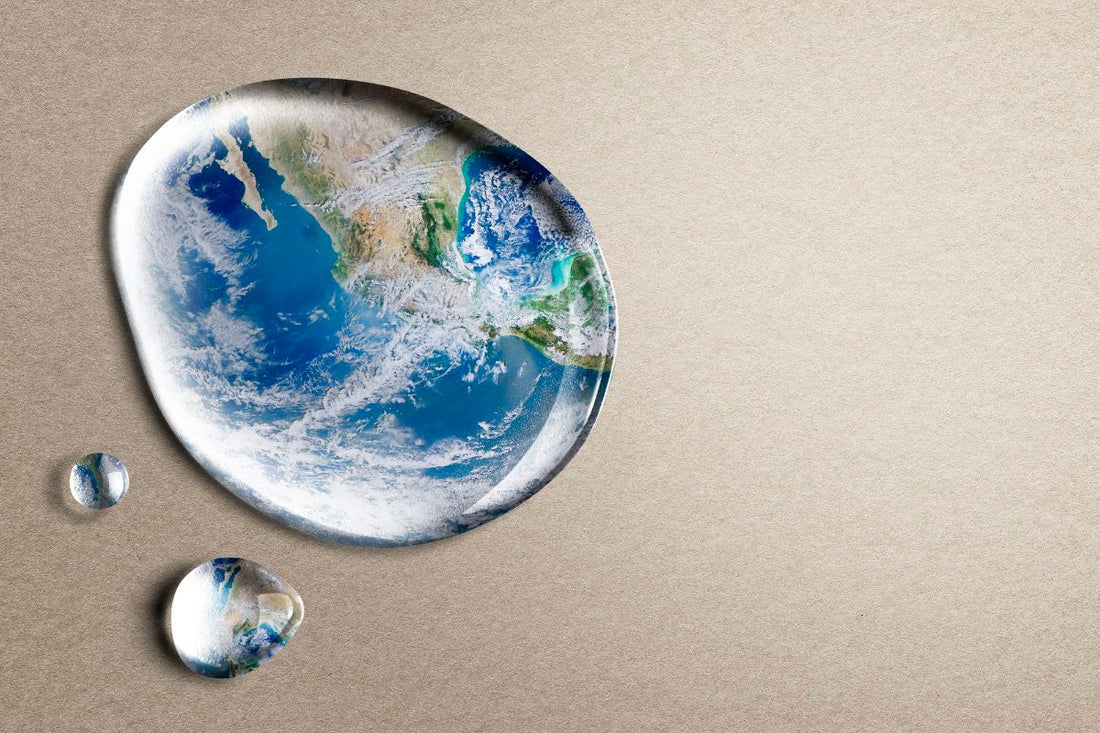Food Waste's Role in Global Warming

Global warming is a critical issue that continuously threatens our planet's equilibrium. A surprising, yet often overlooked contributor is food waste. Beyond wasted resources and hunger, food waste significantly influences global warming's intensification.
The Food and Agriculture Organisation of the United Nations (FAO) provides invaluable insights on this subject. As per their findings, between 8 and 10% of the gasses fueling global warming are due to food loss and waste. In 2021, the world saw an alarming 931 million tonnes of food go to waste. Breaking this down: households wasted 61%, catering services 26%, and retail 13%. Astoundingly, this means that around 17% of the world's food production might be wasted.
Fortunately, we can work together to reduce food waste, carbon emission, and global warming.
Consequences of Food Waste
Environmental Consequences: It's not merely the discarded food we should be concerned about. The water, energy, and various resources utilized in food production, transportation, and storage are wasted in the process. Decomposing food in landfills emits methane, a greenhouse gas far more potent than CO2, adding to global warming.
Economic Implications: Food waste translates to monetary waste. The entire chain, from the hardworking farmer to the retailer, feels the economic repercussions of food waste.
Social Ramifications: In a world with an estimated 9% of its population going hungry, wasting nearly one-fifth of our food production is both alarming and ethically questionable.
Understanding the Origins of Food Waste
It's crucial to pinpoint where and why food waste occurs to address the issue effectively. At the production level, factors like pests, diseases, and unpredictable weather events can reduce yields. Post-harvest and storage losses are attributed to poor infrastructure and inadequate facilities. As we move to retailers, overstocking, and cosmetic standards often lead to wastage. Lastly, at the consumer level, lack of awareness, improper storage, and a culture of abundance play pivotal roles.
Efforts to Reduce Food Waste
Awareness of the problem is only the first step. The United Nations, recognizing the gravity of the issue, has set one of its Sustainable Development Goals to halve global food waste and reduce food losses in both production and supply chains by 2030. Here are some strategies to achieve this:
Spread Awareness: Knowledge is transformative. By understanding the wider implications of wasting food, people can make informed decisions.
Meal Planning: An effective strategy to combat over-purchasing, which in turn minimizes wastage.
Storing Food Effectively: Extend the shelf life of food items by storing them appropriately.
Optimizing Leftovers: Reuse leftovers creatively or freeze them for another day.
Composting: Convert food scraps into nutrient-rich compost rather than sending them to landfills.
Discount Food Boxes: Companies like WIN Sustainably have pioneered the initiative of offering discounted food boxes. These boxes contain perfectly edible food items that may not meet the strict cosmetic standards of mainstream retail, but are otherwise perfectly good to consume. By purchasing such boxes, consumers can save money while playing a part in reducing food waste.
Support and Advocate: Rally behind organizations and policies that focus on minimizing food waste. Lend your voice, time, or resources.
With these steps, each one of us can contribute to the global effort of reducing food waste, saving valuable resources, and mitigating the effects of global warming.
Taking Charge of Our Climate Future
The evidence is clear: food waste is not just an ethical or resource dilemma, but a major contributor to the climate crisis. Every forkful of food that goes into the bin is another blow to our environment, our economy, and our global community. The stakes are high, but there's hope. Food waste significantly impacts our environment and economy.
Recognizing this, WIN Sustainably offers solutions, including discounted food boxes, ensuring consumable food reaches homes, not landfills. Our innovative food leftovers app QA’LIL not only offers financial savings and waste reduction benefits for food outlets and individuals, but also significantly contributes to the reduction of environmental impact, playing a pivotal role in mitigating food waste and its detrimental effects on the planet. Additionally, our app fosters community engagement by connecting local businesses with residents, and promotes a culture of sustainability, encouraging users to make more conscious decisions about their consumption patterns.
Join the movement and champion a sustainable future.